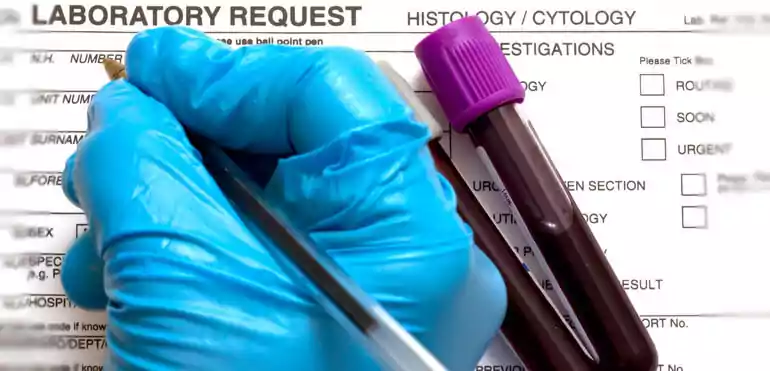
Awareness
PCOS Diagnosis: An Expert Outlines How To Test For PCOS
Sep 21, 2017PCOS can present with a myriad of signs and symptoms. The classical woman with PCOS is overweight, with irregular, potentially painful, periods, infertility, excessive facial and body hair and acne. However, there is a great deal of variation, making PCOS diagnosis difficult.
Because of this variation, it is estimated that up to 70% of women with Polycystic Ovary Syndrome (PCOS) do not know they have the condition. Likewise, there may be an over-diagnosis of those who do not fit the criteria. The number of women who’ve told me they have been diagnosed with PCOS based on ultrasound findings alone is staggering. I’ll explain why this seemingly sensible conclusion is flawed shortly. Before I move on to explain PCOS diagnosis in detail, let me start with a story that explains the challenges associated with it.
The Story of Rachel: A Case of Delayed PCOS Diagnosis
As Rachel reached and then moved through puberty and onto womanhood, her periods remained erratic, at times absent. And her skin maintained the acne spots that were meant to stay behind with her teens. The tiredness could be overwhelming, her moods chopped and changed, but it was the weight gain that tore at her soul.
People would gaze into her food basket while she shopped, expecting all kinds of horribly fattening foods. However, she was very careful about her food choices. Her mom had commented that she looked at chocolate cake like it was the devil, rather than an occasional treat, and she did.
She consulted her doctor because she knew something wasn’t right. She emerged from the consultation with a prescription for the birth control pill and no answers. This prescription seemed to exacerbate her weight gain. When she asked though, she was told she needed to just eat less and exercise more because the pill wasn’t at fault (although it was).
The next years were hard as her body seemed to fight against her. She sought professional help a number of times, without finding a path back to health.
This experience is sadly common. I come across many such stories in my practice.
Research shows a significant portion of women consult with three or more health professionals over a matter of years until a diagnosis of PCOS is reached.
In this misspent time, this syndrome can take ahold of a woman’s body, whittling away at her self-confidence and wreaking havoc on her hormones and future. To compound this, the medications given prior to PCOS diagnosis, and often because of it, may aggravate this syndrome. At the same time, they do not address the complicated web of underlying drivers.
To avoid such a scenario, the right PCOS diagnosis is the key.
The Basics Of PCOS Diagnosis
PCOS diagnosis is a science of exclusion, which simply means that other possible causes for the signs and symptoms must be excluded first. Then the Rotterdam Criteria comes into play.
Current Method For Diagnosis Of PCOS
Currently, one needs to meet at least two of the following criteria to be diagnosed with PCOS.
Three Important PCOS Diagnosis Criteria
- High levels of testosterone
- Irregular or absent periods
- Polycystic ovaries on ultrasound
Can you meet all three?
Absolutely.
Can you have just one?
While I believe that we run along a spectrum and PCOS isn’t as simple as the current diagnostic criteria pretends it to be, the short answer is no. Note how, according to this criteria, it is possible to have polycystic ovaries and not have PCOS? Sounds weird, I know!
I, and other health experts, believe the name of this syndrome is not an accurate representation of this health issue and, to my mind, we must consider important issues like insulin resistance and a sluggish thyroid (hypothyroidism). I’ll explain more in a moment. But first…
How To Test For PCOS?
Basic Tests For PCOS Diagnosis
For diagnosis of PCOS, you’ll need, at minimum, to have your testosterone checked, plus a pelvic ultrasound. Preferably, your testosterone test should include sex hormone binding globule (SHBG) and free androgen index (FAI.)
Some doctors will also recommend the day 21-hormone panel, which looks at other sex hormones. It can be pretty tricky for a women with irregular periods to know just when this will be.
Other Tests For PCOS Diagnosis (Based On Specific Challenges)
Your functional medicine doctor or natural health professional may discuss referring you for other tests, depending on your specific challenges and needs. Some of these tests include:
Glucose Tolerance Test For Insulin Resistance
Your body produces insulin to allow your cells to ‘take in’ glucose (sugar). When a person’s body cannot respond properly to insulin, it produces excessive amounts − known as hyperinsulinemia. As hyperinsulinemia continues, insulin resistance results.
We can also think of it this way. Sugar is a form of energy that we need to function; much like we need gas in our car to make it run. However, sugar is sticky and too much in our blood can cause trouble. So rather than allowing our blood to get clogged up, we have a powerful hormone called insulin, which takes the excess blood sugar by the hand and guides it in to the relative safety of our cells.
In a healthy person, this ensures the blood sugar level stays just right as Goldlocks would say. And the extra is stored in the cells safely for an emergency or times when there is an additional need. In someone with insulin resistance, this system doesn’t run smoothly and we produce additional insulin to try and pick up the slack.
The excess insulin causes the ovaries to swell and develop ‘cysts’ (in truth, the immature follicles seen on ultrasound), and this increases the amount of testosterone produced. This can adversely affect ovulation, the menstrual cycle, and cause the masculine characteristics associated with PCOS such as excessive hair growth and male pattern balding.
A 2-hour glucose tolerance test, with insulin, is a crucial test as many sufferers of this common syndrome have insulin resistance. Watch this video to find out more.
Simple Blood Test For Inflammation
Inflammation is an underlying cause of the disease that is rarely discussed, let alone appropriately addressed. This is no different in women with PCOS, where women have been found to have elevated markers such as CRP or homocysteine.
A simple and informative blood test can assess this for you and your doctor can let you know what this means for you.
Saliva Test For Adrenal Fatigue
When we are under stress, whether because of this syndrome or from other factors, our body produces the hormones; adrenaline and cortisol. These hormones are critical to allow us to instantly prepare to fight or flee; to survive an immediate threat. This is brilliant for our short-term gain, however over the longer term, we exhaust these important emergency hormones. As you can imagine, you can’t sprint a marathon!
When our adrenal glands suffer from extended periods of stress and exhaustion, adrenal fatigue results. While this is not a simple diagnosis, your doctor might refer you for tests like the saliva test. This test will help in tracking the changes in your cortisol levels over a 24-hour period (not to be confused with the 24-hour average cortisol test).
TSH And Other Tests For Thyroid
Tiredness, weight gain, depression, and infertility are some of the symptoms often shared between PCOS and hypothyroidism. And a sluggish thyroid is more common in women with PCOS. It is important to have the right thyroid tests conducted, and your functional medicine doctor is the right person to ascertain your needs.
In the mainstream, thyroid stimulating hormone (TSH) is the primary thyroid test conducted. The normal range given is 0.5 – 4 or 5 mIU/L, depending on the pathology laboratory reporting the results. However, I prefer my patients to be between 1 – 2 mIU/L as there is a correlation between higher TSH levels and insulin resistance.
Other important thyroid tests may include: Free T4, Free T3, reverse T3 and as we discuss in a moment, thyroid antibodies.
Special Tests For Autoimmune Conditions
When the body attacks itself because it mistakes its own tissue for those of a foreign invader, it is called an autoimmune (auto meaning self) condition.
The research shows women with PCOS are more likely, for example, to suffer from autoimmune thyroiditis (where the body attacks its own thyroid gland). They are also more likely to have higher levels of general markers of autoimmunity.
Tests are varied and your doctor will talk to you about the best ones for you. These may include anti-nuclear antibody (ANA), or antithyroid antibodies, for example.
Digestive Stool Test For Gut Issues
Constipation, pain, bloating, frequent hunger. If there is one thing I’ve seen again and again, it’s that PCOS and gut issues occur very frequently together. In fact, when I think back over my years as a clinician, I cannot recall a single women with PCOS without some levels of digestive challenges.
Your functional medicine doctor might need to refer you for a digestive stool analysis (a poo test) to see how well your insides are running.
Getting an accurate PCOS diagnosis with a comprehensive, holistic assessment is the very best place to begin your PCOS journey. And if you have a PCOS diagnosis but have not received much help or thorough assessment, this is the time to start.
References:
http://www.lifesciencesite.com/lsj/life1101s/057_24135life1101s14_318_322.pdf
https://academic.oup.com/humrep/article/25/2/544/673002/The-prevalence-of-polycystic-ovary-syndrome-in-a
http://www.bmj.com/content/358/bmj.j3694.full
http://conqueryourpcosnaturally.com/wp-content/uploads/2015/01/Conquer-Your-PCOS-Naturally-eBook.pdf
http://www.sciencedirect.com/science/article/pii/S0015028205003730
https://www.ncbi.nlm.nih.gov/pubmed/19654109http://www.lifesciencesite.com/lsj/life1101s/057_24135life1101s14_318_322.pd





